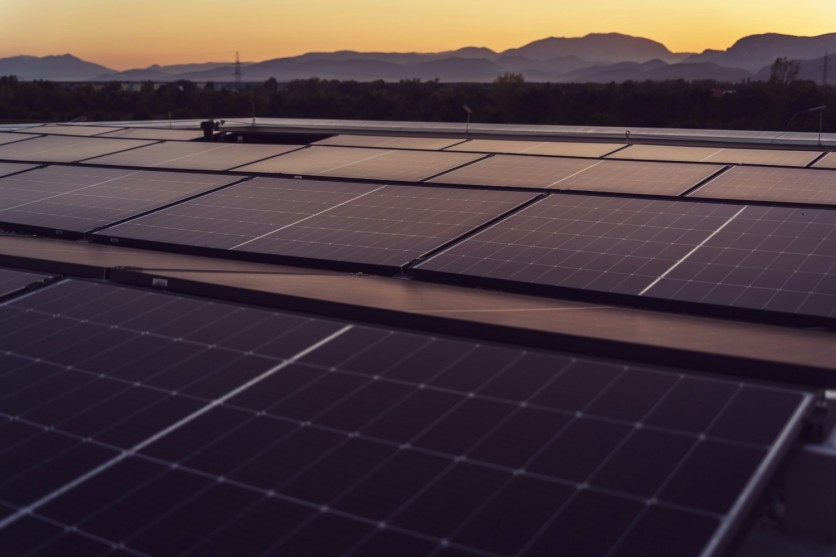
As global emissions continue to accelerate climate change and create worldwide pollution, many agree that a transition to clean and renewable energy is paramount to our future. While the United Nations predicts that a global energy transition could decarbonize 90% of the power sector by 2050, there are a variety of bureaucratic and economic obstacles that make this transition especially difficult.
Jinko Solar, the world's leading manufacturer of solar panels and storage, is one company spearheading the global transition to renewable energy. As the first enterprise in the world to deploy 190 gigawatts of solar panels to over 190 countries and regions, Jinko Solar has firsthand experience with the complications of the energy transition. Here's an explanation of the challenges of the global energy transition and the ways Jinko Solar has addressed them.
Inconsistencies in Global Transition
According to the International Monetary Fund, the lack of consensus surrounding when to implement renewable technologies is a major obstacle to the global energy transition and can slow progress and lead to unnecessary bureaucracy.
This is exemplified by the United States, which was relatively late to the renewable energy transition. In 2009, when President Barack Obama committed to the energy transition, China—today's largest renewable energy producer—was already on track to outpace the U.S. in wind turbine and solar panel production.
With the United States slow to act in the energy transition today, it's finding it tough to meet the domestic manufacturing demand for solar power. According to the National Renewable Energy Laboratory, the U.S. produced merely 5 gigawatts of solar panels in 2022 while importing 29 gigawatts of panels from countries like China and Malaysia.
This lack of domestic production has led to the U.S. enforcing protectionist policies on solar panels, which can disrupt the transition and hurt competition.
For years, China was considered the largest solar market in the world. Its growing domestic demand fostered innovation, research and development, and the construction of more capacities—and that's where a lot of the industry remains to this day. While other countries began to realize they needed more onshore opportunities, in the U.S., it started with the AD/CVD, which is anti-dumping and countervailing duties.
To avoid these complications, Jinko Solar has taken a localized approach to solar manufacturing and established a state-of-the-art manufacturing facility in Jacksonville, Florida, capable of producing 1.2 million solar panels annually.
A Need for Global Energy Leaders Like Jinko Solar
As more and more consumers demand renewable energy options, there's an increasing demand for global energy leaders not only within government but also within the renewable industry. Global energy leaders are crucial to implementing renewable projects and influencing clean energy policies, and Jinko Solar is at the forefront of the solar industry as a global energy leader.
Earlier this year, Jinko Solar joined the International Renewable Energy Agency Coalition for Action. The IRENA Coalition brings together 130 world-leading renewable energy stakeholders—from private sector companies to industry associations, civil society, research institutes, and intergovernmental organizations—to discuss industry knowledge, trends, actions, and best management practices in the promotion of renewable energy transition.
"We are very proud to become a member of the IRENA Coalition," said Jinko Solar Vice President Dany Qian in a press release. "We expect that joining the IRENA Coalition for Action will contribute to enhancing Jinko Solar's industry reputation, fostering business growth, and establishing strong partnerships with leading institutions and professionals in global renewable energy development. We believe this will unlock broader opportunities for our development and make a positive contribution to the sustainable advancement of renewable energy globally."
As Jinko Solar continues to fuel the global energy transition with record-breaking sales and growth, the company was invited to participate in the COP28 United Nations Climate Change Conference to further its mission of "changing the energy portfolio and taking responsibility for enabling a sustainable future."
At COP28—which took place in Dubai, United Arab Emirates, Nov. 30 through Dec. 12—Jinko Solar will exemplify its commitment to the goal of tripling the renewable energy installed capacity by 2030 by engaging and collaborating with heads of state and government, private sector leaders, civil society representatives, and international organizations.
Difficulties with a Sustainable Transition
While the renewable energy transition is crucial to reversing the impacts of climate change, that doesn't necessarily mean it will be sustainable. According to a recent study published in the scientific journal Proceedings of the National Academy of Sciences, the creation of renewable infrastructure is expected to produce 185 billion tons of CO2 by 2100.
This is an undeniably harrowing statistic, but companies like Jinko Solar are doing their best to ensure a sustainable transition. Jinko Solar is dedicated to practicing responsible manufacturing and continues to reduce its energy consumption, emissions, water usage, and waste to achieve net-zero production by 2050.
Additionally, Jinko Solar follows a vertically integrated production model, allowing for an emphasis on traceability, safety, and environmental health while maintaining a low cost. A vertical integration as a significant element in Jinko Solar's competitive advantage throughout the energy transition can be credited for that.
Jinko Solar is one of the few vertically integrated manufacturers, and it has a completely vertically integrated non-China supply chain, largely due to the fact that it has this vertically integrated capability. Competitors, especially on the U.S. side, often just have the assembly capability.
As countries continue to embrace the global energy transition, industry leaders like Jinko Solar are vital in mitigating the many complications that come with the large-scale adoption of renewable technologies. While the path toward worldwide clean energy remains unclear, Jinko Solar continues to light the way to a green future.
ⓒ 2026 TECHTIMES.com All rights reserved. Do not reproduce without permission.





